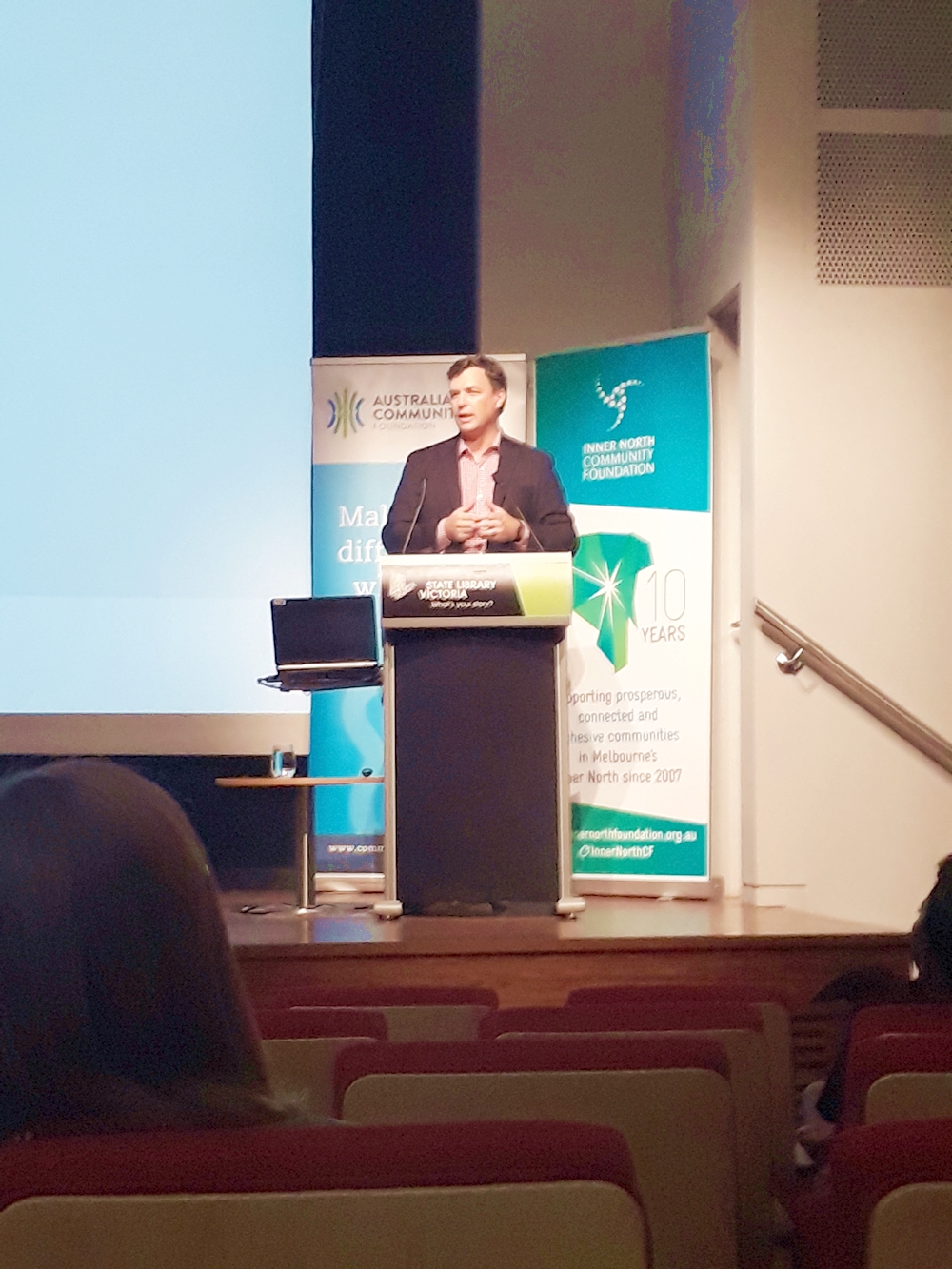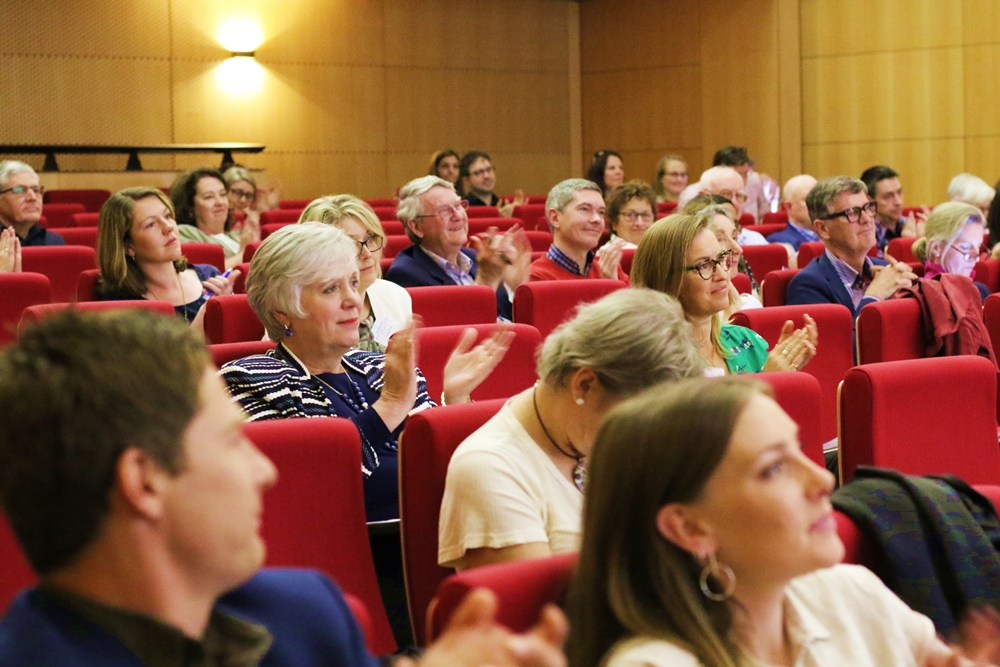For three days in a warm October week in Melbourne, Victoria, Australia’s community foundations sector gathered to reflect, learn and engage on some of the country’s most pressing challenges.
For me, this annual forum is always a grounding experience and one that reminds me of how valuable community foundations are to the social and economic fabric of communities. This year was no different.
The opening keynote by Ian Bird from Community Foundations of Canada took delegates to the heart of community foundations – what it means to belong, what it means to be both global and local, and to the very practical way that working with, and alongside, people in communities shows up in improved outcomes locally and, if we work collectively, globally.
These ideas were threaded throughout the forum and reflect a deepening maturity and growing sense of the community foundation sector knowing itself and being confident in its role.
A panel discussion on belonging reminded us that there are many in our communities who are excluded from social, cultural and economic systems, ‘knocking on doors that may never open’.
Community foundations exist through a social contract to collectively support the future of their communities through facilitating fairness, equity and sustainability and are fundamentally concerned with strengthening inclusion and belonging.
Measuring the impact of this work is potentially problematic but leading practice shared by Kevin Robbie from Think Impact, along with presentations from three community foundations and the launch of Vital Signs Melbourne and Fremantle, illustrated that bringing together hard data with the stories of lived experience as a result of localised philanthropy tells a powerful story – and can be done at any scale, in any context. But it must be anchored in the ‘why’.
My attention is always tuned into what this means for rural, regional and remote communities. Rural communities are at the forefront of global forces – pressures on land and water use, exposure to natural disasters and long-term drought, access to equitable services, and population movement, as well as the opportunities that exist in digital economies – to name just a few.
The intersect between global and local resonated with me and is something I have been reflecting on myself at the Foundation for Rural & Regional Renewal (FRRR), as we navigate the environmental, economic, political and social landscape and consider the most effective outcomes our grant-making, capacity building and influencing work can support.
Community foundations sit in a ‘sweet spot’, as they are typically in and of a region and focussed on building a region’s capacity to proactively respond and to filling the gaps that exist in local infrastructure and services.
The UN Sustainable Development Goals provides a framework for community foundations to have both a local and global impact, approaching macro issues at the local level in very real ways – by supporting local landcare groups, leadership programs, food share projects, playgroups and early learning projects, events that attract tourists and bring new money to towns, scholarships to nurture local talent, and many more.
Community foundations exist to strengthen the fabric of their communities and are well worth investing in, partnering with, and celebrating.
FRRR is proud to have played a role in building the community foundation sector in Australia and continue to support many through fundraising, grant-making and capacity building.
We sponsored several rural community foundations to attend the 2017 forum and am confident that they will return to their communities with renewed focus and purpose.
Natalie Egleton is CEO for the Foundation for Rural & Regional Renewal, Australia.





Comments (0)